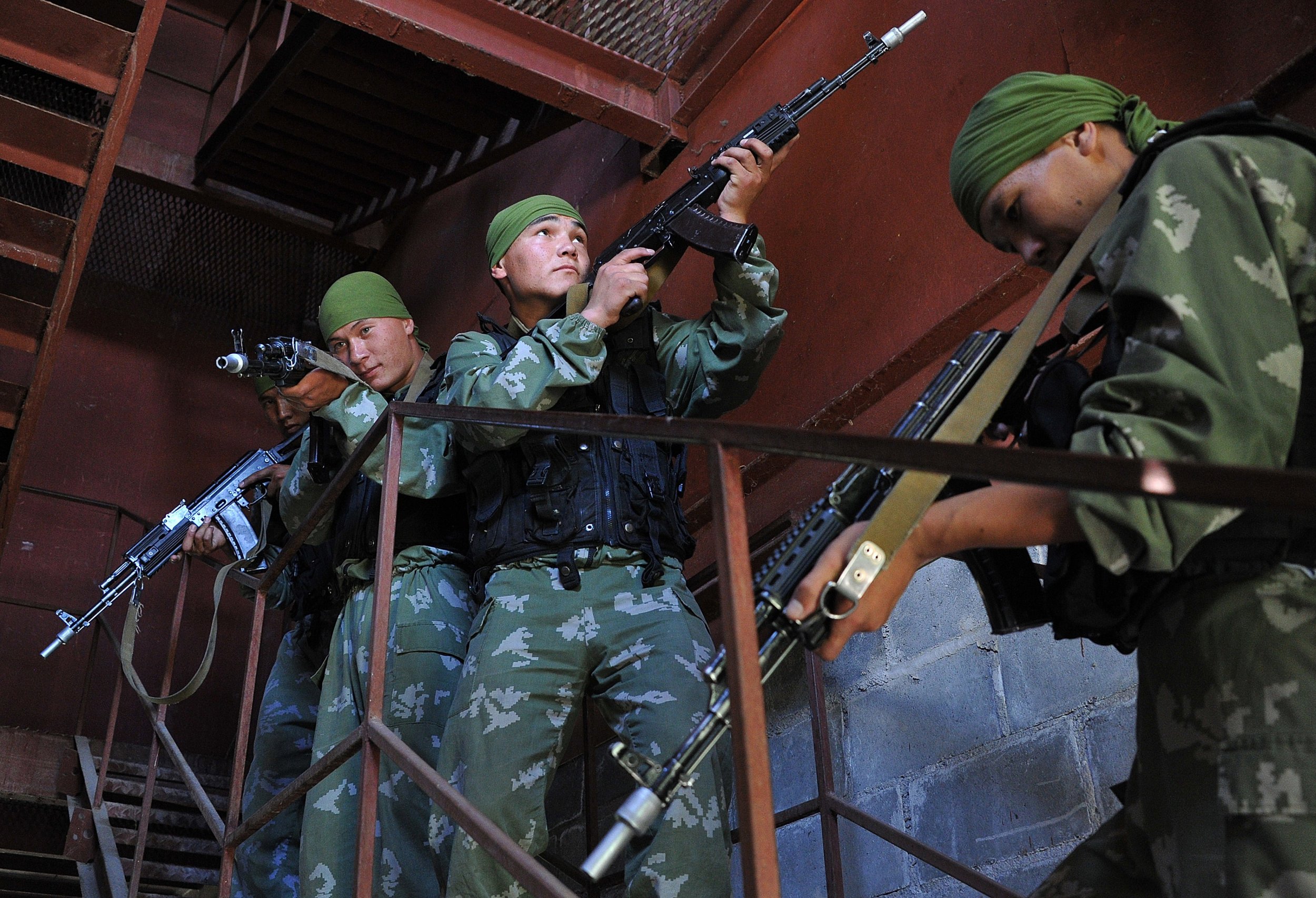
Quora Questions are part of a partnership between Newsweek and Quora, through which we'll be posting relevant and interesting answers from Quora contributors throughout the week. Read more about the partnership here.
Answer from Roland Bartetzko, former German Army Paratrooper, Croatian Defense Council, Kosovo Liberation Army:
There all kinds of reporters embedded in the military, but usually they are annoying. However, once in a while you meet someone who is not only a decent fellow, but a great guy:
One morning in late autumn, there was a group of reporters waiting outside our Kosovo Liberation Army (KLA) base. Five journalists from different international media pushing each other to get an exclusive interview with our commander.
One of my comrades told me later, "Our commander told me to go outside and pick one journalist for the interview. When I went to the gate and saw all these journalists blocking the entry and talking like crazy, I remarked a skinny guy at the other side of the street, calmly smoking a cigarette. This guy didn't even look up when I announced that only one of them would be allowed to enter the base. I pointed my finger at him and told him to come inside: He was the only one not breaking my balls."
Miguel (Miguel Gil Moreno de Mora) was his name. He was a Spanish cameraman working for the Associated Press. Before he had come to Kosovo he had covered the war in Bosnia. I later learned that he has also been a member of a Spanish Special Forces unit.

From day one we all had a very good relationship with Miguel. As he has been a soldier himself, he knew how to move around and never stood in the way while filming our operations. Many reporters used to be arrogant and bothered us with stupid questions ("What did he say? What did he say now?"). Miguel didn't talk much, but when he did, it was short and to the point.
After a while, we became accustomed to his presence and he practically became a member of our unit. When the roads were bad or it was too late for him to return to his office, he would sleep at our base.
I would often talk to him, not only about the war in Kosovo, but about military and political topics, good food and drinks, and even about literature (he admired Graham Greene) and philosophy. One day we had a long conversation about the best whiskey brands. Whatever he did, he was always thoughtful, calm and friendly.
Then the Serbs started their spring offensive and I somehow lost sight of Miguel. There was plenty of fighting all around the country and it was a busy time for reporters.
The enemy closed in on us and we were fighting day and night to defend our base. After three weeks of combat we finally had to withdraw. We split up in small units and went into the forest, still trying to slow down the enemy advance.
After two days we heard that enemy forces had bypassed our defenses and were already approaching the villages behind us. We decided to go to another village to join with other KLA units and to set up a new defense line.
After three weeks of heavy fighting and endless artillery fire, I was tired, exhausted, hungry and depressed: We had lost our base and things looked very bleak.
We arrived at the village and when I looked around I saw that it was full of people. Refugees and soldiers, all of them desolate and in full retreat. I went to an empty house with my small group, found an empty room and fell asleep immediately. After an hour there was a knock on the door. When it opened I saw that it was Miguel!
He said: "Come with me!" and we went to the end of the village where his Land Rover was parked. He opened the back and there it was: A bottle of the finest Single Malt Highland Scotch Whisky!
Miguel obviously hadn't forgotten our previous conversations. I was amazed. He must have gone to great lengths to get his hands on that bottle.
That night I shared the bottle with my comrades. For a few hours we forgot all the chaos around us and enjoyed a good bottle in good company.
The next morning we went back to war. We continued delaying the enemy from one village to the next. A week later NATO started their air campaign and all journalists were expelled from the country.
A couple of days after the war ended I saw Miguel again. He came to see us in our new base in a recently liberated city. We had a couple of drinks and started swapping stories about what happened to each other since we last met.
Later on, Miguel went to cover the war in Chechnya, but he came back for a short visit in Kosovo where we met again. In 2000 Miguel was killed in an ambush while covering the civil war in Sierra Leone.
We miss him.
Do soldiers like reporters following them in combat? If it's a guy like Miguel—hell yes!
Do soldiers like reporters following them when in combat? originally appeared on Quora—the knowledge sharing network where compelling questions are answered by people with unique insights. You can follow Quora on Twitter, Facebook, and Google+. More questions:
- Journalism: What are the flaws in online journalism and media today? How can they be addressed?
- Warfare: What is the best thing to do when a grenade is thrown at you?
- Military: What are some major Hollywood misconceptions about shootouts?
Uncommon Knowledge
Newsweek is committed to challenging conventional wisdom and finding connections in the search for common ground.
Newsweek is committed to challenging conventional wisdom and finding connections in the search for common ground.





